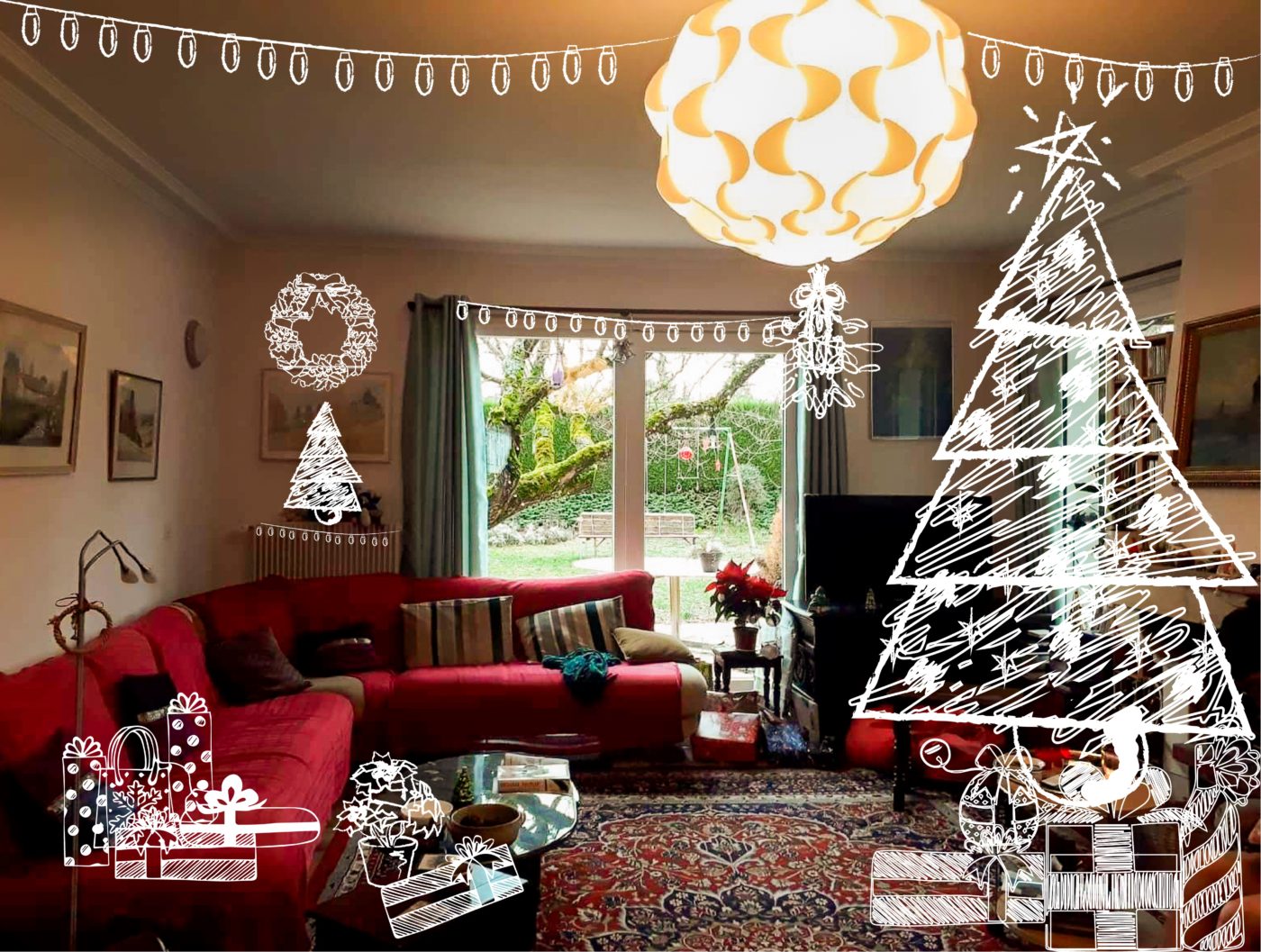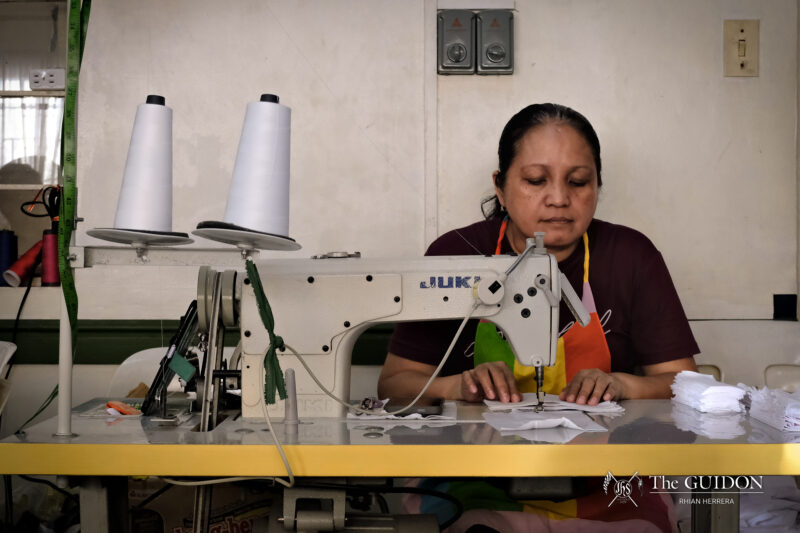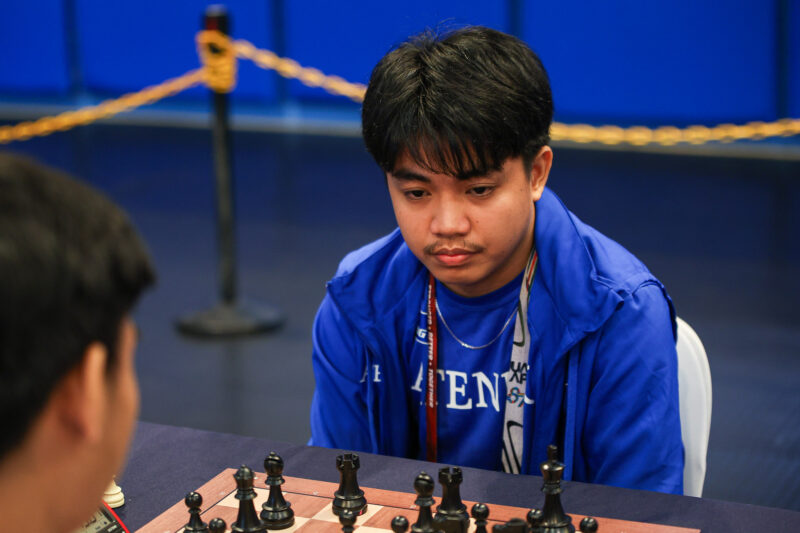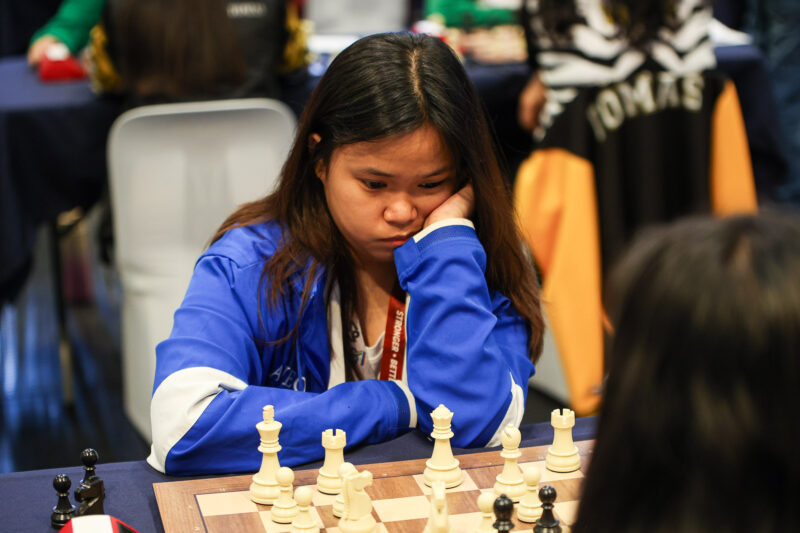Nothing brings the country together like Christmas. As early as September, streets usually dim at night become bright with lights, and malls begin the sale of Christmas trees of every variety. So beloved is the holiday to Filipinos that the Philippines is internationally known as celebrating the longest Christmas in the world.
According to the latest available data from the Philippine Statistics Authority, at least 92% of the population is Christian as of 2010. But what about Filipinos belonging to other faiths? Given the history of Christianity’s influence on the country’s culture as a whole, the answer may not be particularly surprising.
The Nativity of Christ Isa
“Muslims and Christians are cut from the same Abrahamic tradition, so despite religious differences, we have [commonalities],” says Datu Amir Wagas, a practicing Muslim and freshman at the Ateneo Law School.
The figure of Jesus Christ is one such commonality, found in both the Christian Bible and the Muslim Quran as the prophet named “Isa.” The two sacred texts, however, depict the story of the first Christmas quite differently.
Jesus is famously born in a manger, but Chapter 19 of the Quran depicts how Mary gave birth to Jesus by a palm tree, and then, immediately after being born, the infant Jesus is said to have even spoken to his mother.
Growing up in a predominantly Christian country, Wagas is aware of the differences between the two religions. He is also aware of the Philippines’ rich Islamic culture, saying, “Although there is merit in saying that practicing Islam is relatively more difficult in a non-Muslim country, the same cannot be said when you have well-established Muslim communities and identities across the country.”
In the Philippines, the lights and sounds of the December holidays are difficult to escape. None of this is new to Wagas. “[W]e Muslims enjoy [a] diversity of cultures, and the Christian-Filipino culture has already been all too familiar for us,” he says.
In the spirit of camaraderie, Wagas often finds himself taking part in holiday traditions like the exchanging of gifts. The holiday break also gives him and other Muslims a chance to spend quality time with their loved ones. He says that activities like these are universal in spirit and are “embraced by all.”
Despite partaking in holiday activities, though, Wagas still recognizes that Christmas is a Christian holiday. He explains that Muslims do not attempt to blend their religious traditions with Christmas.
Wagas chooses, however, to focus on the universal values shared by the two faiths, saying, “Religious boundaries and beliefs, although important, do not necessarily prevent one from acknowledging and exhibiting happiness and joy for others.”
He adds, “I need not believe in [Christmas’] religious significance to wish my beloved Christian brethren a joyous holiday.”
Come, all ye faithless
“Believing in just one religion doesn’t make sense to me,” says Tamara Damary, a political science senior and an atheist. “Every religion objectively has just as much validity as [the] other.”
Damary grew up in Switzerland, which ranks as the fourth least religious country in Western Europe according to a 2015 study by WIN/Gallup International. The same study places it as the 14th least religious country worldwide.
Having grown up removed from religious influence, it stands to reason that Damary’s Christmas rituals are a bit aways from the traditional Filipino festivities. When asked, she describes a scene, not unlike one found on Hallmark gift cards: Her family hangs stockings on the mantelpiece, roasts a turkey for dinner, and, if outside, trudges through the blanket of snow that gathers outdoors.
But what separates Damary’s experience of Christmas from that of the local Filipino’s runs deeper than serving food not native to Asia and the normality of the weather being cold enough to form snow.
“For me, Christmas is much more of a [personal] thing,” she shares. “It’s something that’s kept in the family–it’s not a community thing. Here in the Philippines, Christmas seems much more like a community thing.”
Broadly speaking, the Filipino communal atmosphere is rooted in the concept of kapwa—the unity of the self and the other. Christmas in the Philippines is the most obvious exhibit of the Filipino pakikipagkapwa, when an entire nation is pushed together in the religious celebration of the birth of Christ, sharing in traditions such as Simbang Gabi, Noche Buena, and the quintessential fruit salad.
In the West, including Switzerland, the individual is prioritized so that the well-being of every person is achieved through separation. Independence is key.
“Put like that, it sounds lonely,” Damary admits. “But it’s really not. My family tends to be pretty scattered during the year, so it’s a special occasion when we get to all come together.”
O Christmas tree, o Bodhi tree
In 2013, Rianne Lim, a freshman honors management major, converted to Buddhism after the passing of her grandfather. “It felt wrong for me to pray to [the Christian] God for my lolo who was Buddhist,” she shares.
Lim and her grandmother are the only practicing Buddhists in her otherwise Catholic family. This places the pair of them in an interesting position in December, when the entire country gears up for the Christmas season.
Buddhism in the Philippines traces its roots to 1881 when a man from Canton secretly placed a statue of the bodhisattva Guanyin in the Bangkusay district of Manila. Chinese immigrants and Chinese-Filipinos began to gather around the statue, treating the site as a locus of Buddhist devotion.
Although Buddhists have no concept of a personal god, many regard Christ as a spiritual teacher that shared similar teachings with the Buddha; both focused on the morality of peace, prioritization of the poor, and abandoning selfish desires.
“Contrary to what people think, we Buddhists actually take part in Christmas traditions,” Lim explains. “Since it’s a holiday of blessings, it’s okay for us to take part in it. However, [our family doesn’t] celebrate Christmas for three years if an immediate relative has died.”
Even if only a portion of Lim’s family is Buddhist, the entire family observes the passing of Christmas if a death in the family has occurred. When Christmas does happen as planned, Lim explains that the only stark difference between the Catholics and Buddhists in her family occurs when it’s time to pray.
“When they pray thanks to [the Christian God], lola and I go to the Buddha statue in our house to pray thanks,” she explains.
For plenty of families like Lim’s own, a type of cultural compromise has become necessary during times of specific celebration. Christmas in the Philippines has outgrown its religious roots and has become so embedded in Filipino culture that it is as much a national holiday as it is a religious one.
“I like the hybrid tradition we have,” Lim admits. “I know there are different ways to celebrate Christmas that are all acceptable and not mainstream. Just because [they’re] not on the media doesn’t mean my celebrations are less significant.”
And to all a good night
Centuries have passed before Christmas developed into what it is today. What began as a commemoration of Christ’s birth has transformed into a global phenomenon, encompassing all people regardless of their religious beliefs.
Many today recognize that Christmas represents more than the birth of Christ. Despite the Philippines’ fervent devotion to Christianity, the Filipino Christmas manages to offer people of other faiths a place in the Yuletide season.
Beneath the religious traditions and excessive consumerism is the meaning of what Christmas has become. The significance of the holiday doesn’t lie solely in religion, but also in the humanity of the event. Recognizing the universal ability of Christmas to bring people together is a gift in itself.
Photo courtesy of Tamara Damary. Post-processing by Aldo Santiago. Illustration by Romeo Descalso III
What do you think about this story? Send your comments and suggestions here: tgdn.co/2ZqqodZ







